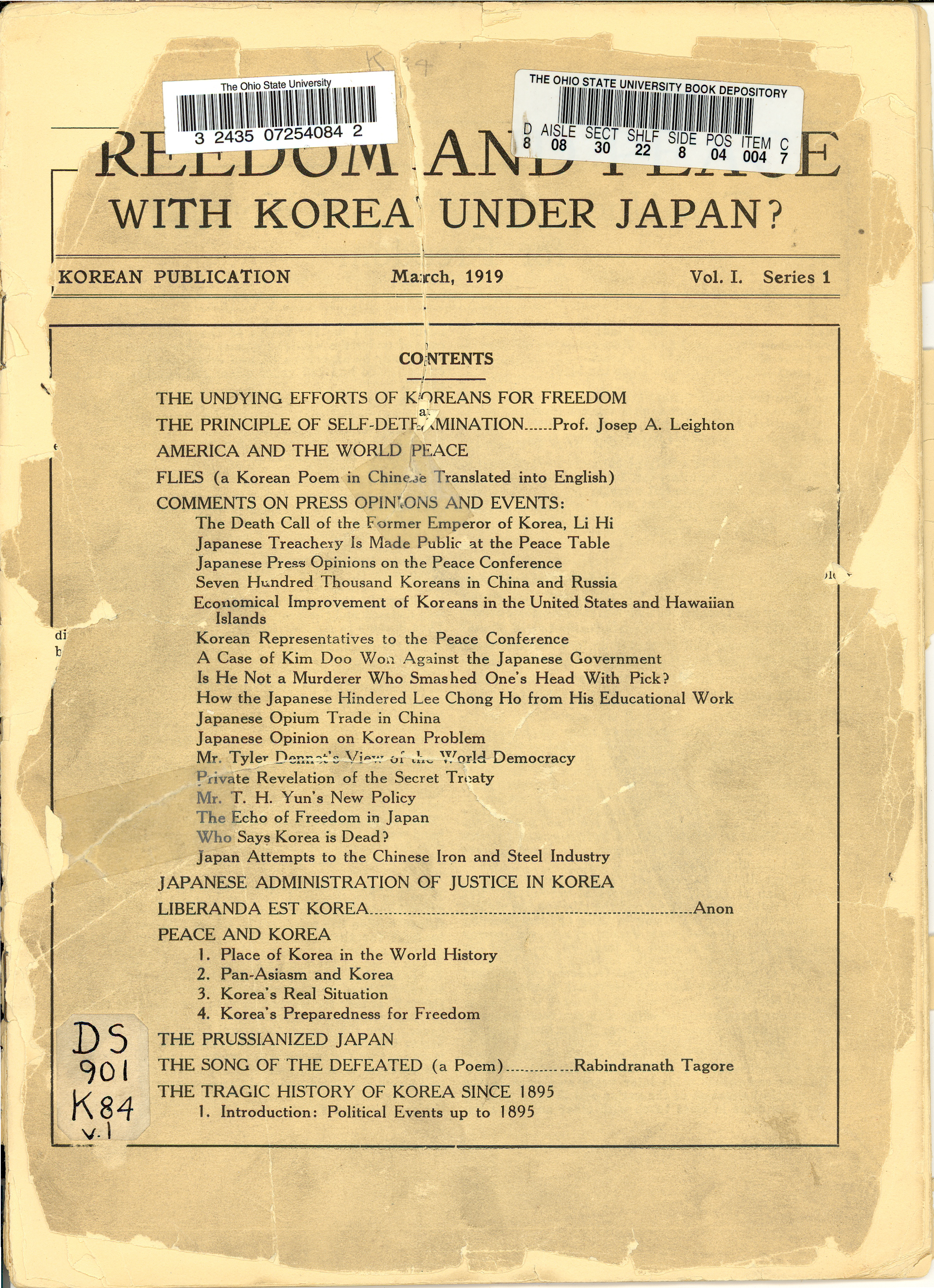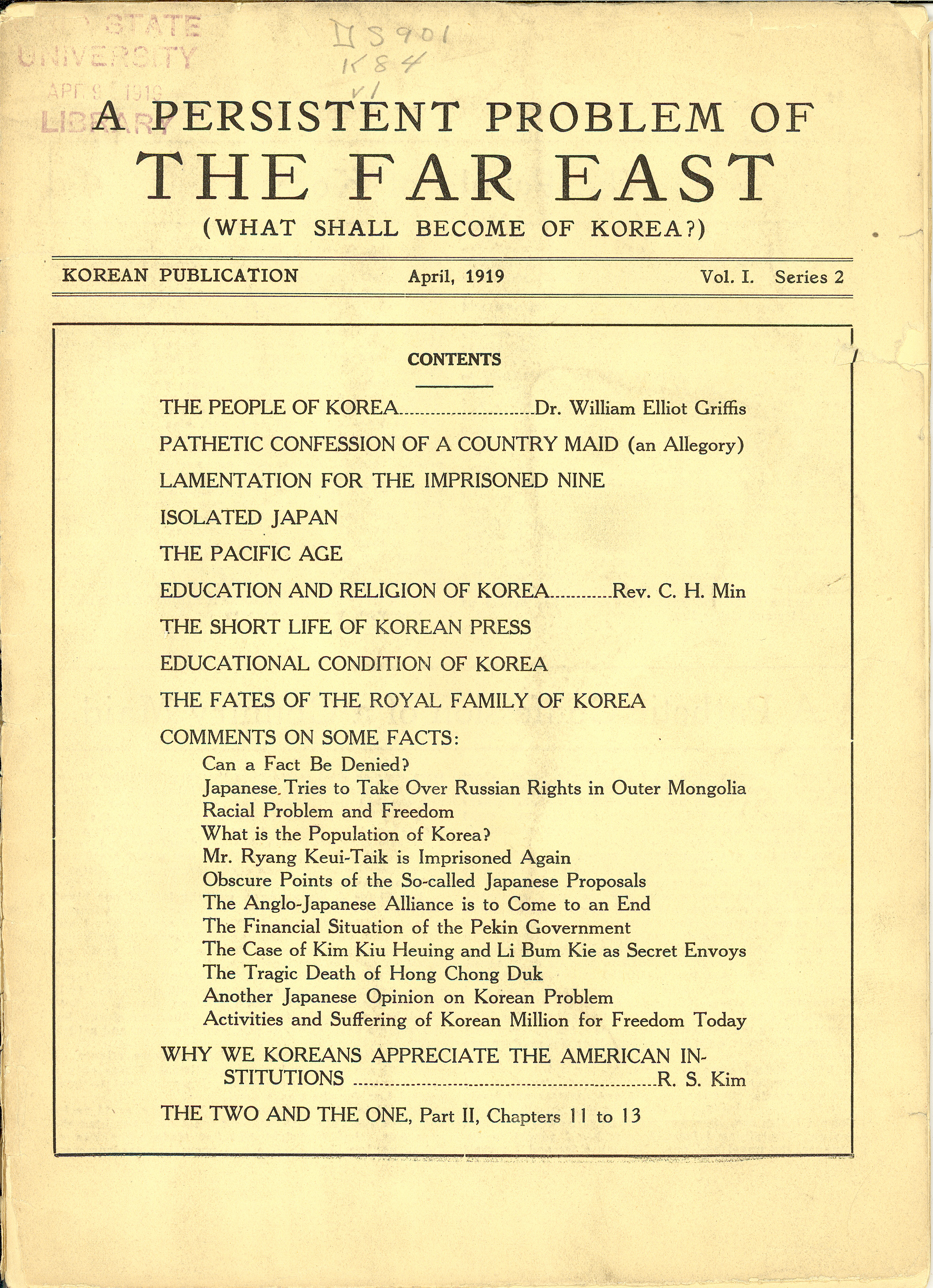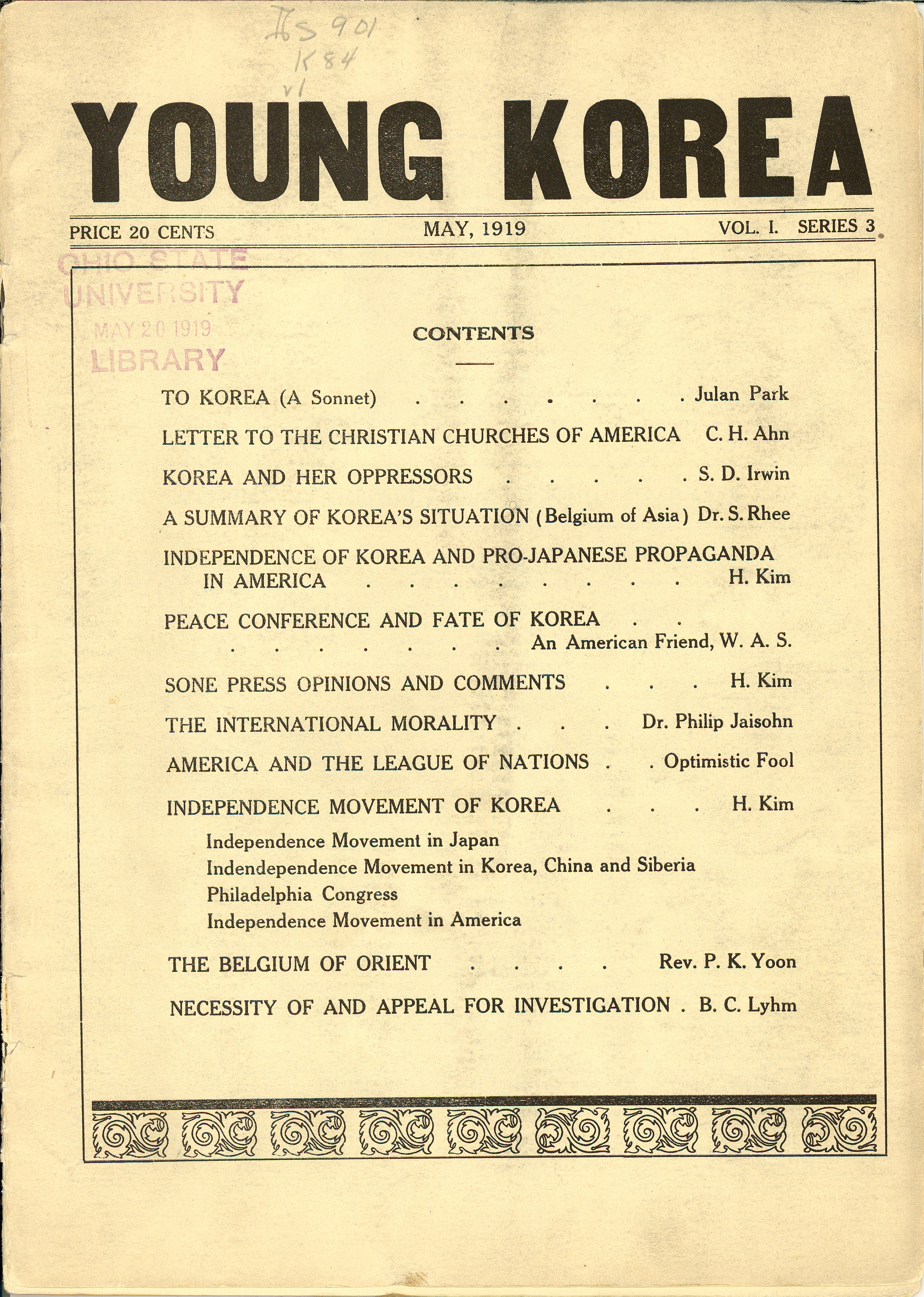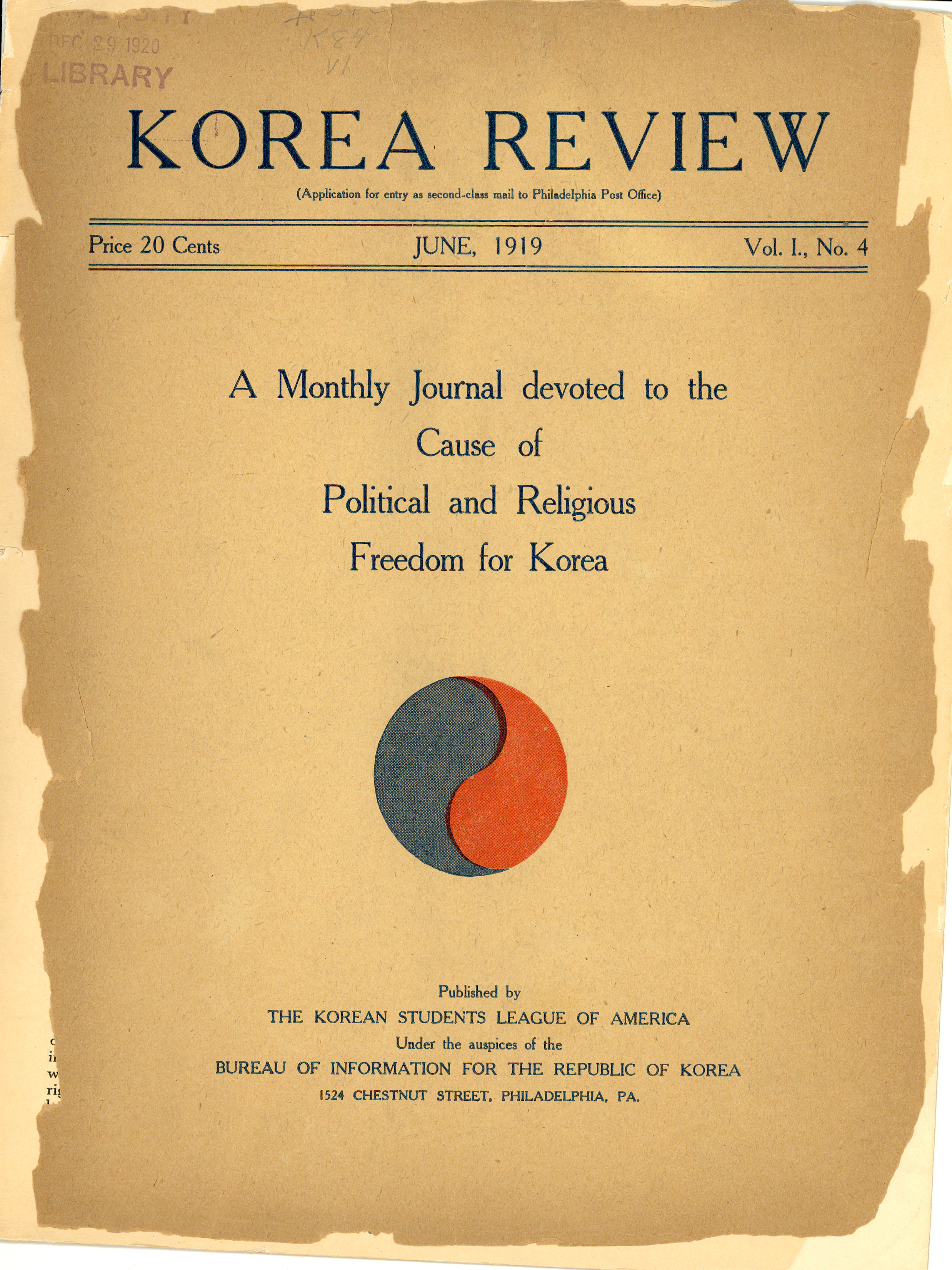The aim of "Forward Into Memory" is to empower educators and students to connect to the morally rich transnational narratives connected to some of the stories of the peace, democracy and human rights movements of Korea in the late 19th century, and hence prior to the division of the country (in 1945). Too many narratives focus on Korea's post-division "atrocity history". While important, also important are the stories that comprise the "positive history" of the Cosmopolitan Spirit and its connection Korean History. To that end, Forward into Memory is an international, interdisciplinary project which exposes English speaking audiences (both inside and outside of Korea) to a different narrative of modern Korean history. Specifically, we focus on the democratic, non-violent and transnational aspects of movement for Korean Independence, self-determination and democracy. This framework enables us to appreciate the linkages amongst Korean History, U.S. history and the international "Peace through Law" Movement that continues to this day. A fundamental premise of this project is that we cannot fully understand who or what we are, or where we are going, without understanding these linkages. A guiding philosophical idea is the one offered by Korean philosopher and peace and democracy activist Ham Sok Hon (함석헌) (1901-1989), who reminds us that History is a "relay race" in which every generation must continue to "run with" and build upon the constructive project passed on by prior generations.
The March 1, 1919 Movement is central to this project, and much of "Forward Into Memory" focuses on that movement. This important movement that occurred prior to the division of the country in 1945 is largely unknown to English speaking audiences. This project brings attention not only to the philosophy of the March 1st Movement, but also to some of the important individuals involved in that movement and its continuation. Namgang Lee Seung Hoon (남강 이승훈(南岡 李昇薰)), Ham Sok Hon and Philip Jaisohn (Soh Jaipil (서재필) are among the many individuals who serve as moral exemplars for all citizens and deserve to be studied. We also include some post-division stories, such as the democracy movement which grew significantly in South Korea in the 1980s and 1990s, thanks to the work of individuals during these formative years such as Ham Sok Hon and Kim Dae Jung (김대중), who both stressed non-violence and reconciliation. We draw attention to individuals who model virtues such as fortitude, empathy, reconciliation, compassion and cosmopolitanism. Aristotle (384-322 B.C.) and other philosophers such as Marcus Aurelius (121-180 A.D.) taught that living examples or "moral exemplars" were necessary for the cultivation of virtue. We agree. Without role models, the cultivation of virtue is essentially impossible and the human being loses one's way on the path to flourishing. We believe that a study of the individuals on this site helps to guide the human spirit in its movement toward blossom. In addition to focusing on individuals, we also draw attention to powerful primary source documents which carry life-affirming ideas of International Unity, Understanding and Fellowship.
There is a specific vocabulary that we use and that is further explained at the "How to Use this Site" section on the home page (link below). We use the phrase "Enter the forest" to refer to the "point of entry" of a complex story. Where do we "enter the forest" of "Korean History" which spans thousands of years? With this project, we enter in the late 19th century, an era in which ordinary people began to set their hand to the plow to organize the world for more harmony, more dignity and less violence. Korea was unified, and there was an effort for Koreans to have a voice at the table. A unified Korea was repeatedly shut out from the international community, however. It was denied a seat at the table when the world was reorganized after World War 1, and it was denied a seat at the table when the world was reorganized after World War 2, and at the organizing conference of the United Nations. Understanding this story is not only necessary for a proper appreciation of the present, but is also a valuable means by which to reconnect with and be inspired by the values which we hold dear: democracy, independence, self-determination, autonomy, human dignity, fellowship, community and the priority of Right over might.
Forward Into Memory was founded by Professor Hope Elizabeth May in 2017 during her time as a Fulbright Senior Scholar and then as an International Scholar at the Graduate Institute of Peace Studies at Kyung Hee University in Namyangju, South Korea. The students in her class focused on the March 1 Movement helped greatly in the building of this project. Some of their contributions are archived here. Thanks to Professor Song Chong Lee, an expert on Ham Sok Hon's philosophy and its connection to Cosmopolitanism, the project now includes a team of graduate students from Seoul National University, where Professor Lee currently teaches. You can listen to a podcast episode with Professor May, Professor Lee and students from Central Michigan University on the page devoted to Ham Sok Hon, here.








